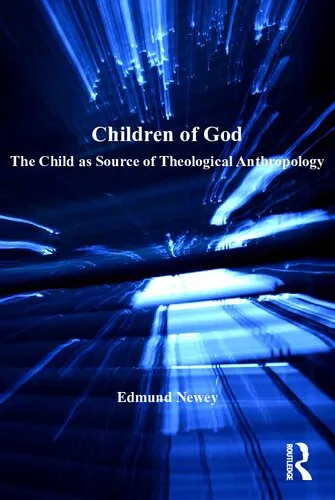Children of God: The Child as Source of Theological Anthropology
4.3
Reviews from our users

You Can Ask your questions from this book's AI after Login
Each download or ask from book AI costs 2 points. To earn more free points, please visit the Points Guide Page and complete some valuable actions.Related Refrences:
Introduction to 'Children of God: The Child as Source of Theological Anthropology'
In 'Children of God: The Child as Source of Theological Anthropology,' we embark on an exploration of how the nature and experience of children can profoundly shape and inform our understanding of theology and anthropology. This book delves into the essence of what it means to be human by looking through the lens of childhood, a perspective often overlooked in theological discourse.
Detailed Summary of the Book
In this book, I present a comprehensive analysis of the theological implications of childhood. The core thesis asserts that children are not just subjects of theological teaching but are central to understanding our humanity and our relationship with the divine. The book is structured around integrating theological anthropology with insights drawn from various fields such as psychology, education, and sociology to enrich our understanding of children and childhood.
The first section explores historical perspectives on children in theological writings, highlighting shifts from viewing them as lesser beings to recognizing their theological significance. Subsequent chapters discuss the unique characteristics of children—such as their inherent trust, openness, and capacity for wonder—and how these traits can illuminate adult faith and understanding.
A central theme is the exploration of children’s roles in religious narratives and practices and how these roles offer deeper insights into divine-human interactions. The book culminates by emphasizing that engaging with children presents a transformative opportunity for theology, urging theologians and believers alike to reconsider preconceived notions about spiritual maturity and growth.
Key Takeaways
- Children's characteristics can serve as profound theological symbols and sources of insight.
- Theological anthropology is enriched by incorporating the lived experiences and perspectives of children.
- Engaging with children challenges traditional theological assumptions and fosters fresh spiritual insights.
- The childlike virtues of faith, openness, and wonder are essential to a holistic understanding of God and humanity.
Famous Quotes from the Book
"In every child, there lies a reflection of the divine, a reminder of the inherent value and complexity of humanity."
"To truly understand the nature of God, one must be willing to learn from the simplicity, curiosity, and honesty found in children."
Why This Book Matters
'Children of God: The Child as Source of Theological Anthropology' is a pioneering work that calls for a reevaluation of how children are perceived within religious frameworks. This book is crucial for theologians, educators, and anyone interested in the intersection of childhood and spiritual development. It challenges the reader to consider how children not only receive teachings but significantly contribute to the theological landscape by embodying essential spiritual qualities.
In a world where children’s voices are often marginalized, this book serves as a critical reminder of their importance, urging a shift in how religious communities and scholars engage with the youngest members. By acknowledging the theological contributions of children, we open the door to a deeper and more inclusive understanding of our faith and humanity.
Free Direct Download
You Can Download this book after Login
Accessing books through legal platforms and public libraries not only supports the rights of authors and publishers but also contributes to the sustainability of reading culture. Before downloading, please take a moment to consider these options.
Find this book on other platforms:
WorldCat helps you find books in libraries worldwide.
See ratings, reviews, and discussions on Goodreads.
Find and buy rare or used books on AbeBooks.
1283
بازدید4.3
امتیاز50
نظر98%
رضایتReviews:
4.3
Based on 0 users review
"کیفیت چاپ عالی بود، خیلی راضیام"
Questions & Answers
Ask questions about this book or help others by answering
No questions yet. Be the first to ask!



